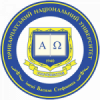Interdisciplinary Coordination in the Primary School Teacher and Educator Training System
DOI:
https://doi.org/10.15330/jpnu.9.1.139-145Keywords:
competence, competence approach, interdisciplinarity, methodical system of education, professional speech, synergeticsAbstract
The article highlights the problem of realization of interdisciplinary connections in the process of preparation of future primary school teachers and educators of preschool educational institutions. The emphasis is placed on the need to apply a competency-based approach to ensure the mobility and adaptability of graduates of pedagogical institutions of higher education in compliance with international educational standards. The semantic characteristics of the concept of "interdisciplinary coordination" are analyzed in order to linguistically substantiate the choice of terminological tokens from a number of synonyms and to build a hierarchy of the studied concepts. Interdisciplinarity is inherent in the holistic process of forming the components of the competency paradigm in the training of specialists in the pedagogical field. From the standpoint of the competence approach, interdisciplinary coordination involves creating conditions for the synthesis of knowledge and experience of behavior in a professional context. The classification distribution of interdisciplinary coordination in accordance with the methods and directions of its implementation in the system of training future primary school teachers and educators is carried out. The signs of regressive and progressive interdisciplinary coordination and the practical aspect of their implementation within the educational and professional programs "Primary Education" and "Preschool Education" are determined. The system-synergetic connections between the blocks of academic courses by types of interdisciplinary coordination within the studied specialties are visualized. The emphasis is placed on the dynamics of quantitative and qualitative indicators not only within one type of interdisciplinary coordination, but also between them within the axis in response to public demands. The advantage of progressive horizontal interdisciplinary coordination in the training of preschool education specialists has been established. Implementation of an interdisciplinary approach in the methodological system of education is a determining condition for the effectiveness of the formation of competencies of future specialists in the pedagogical field.










